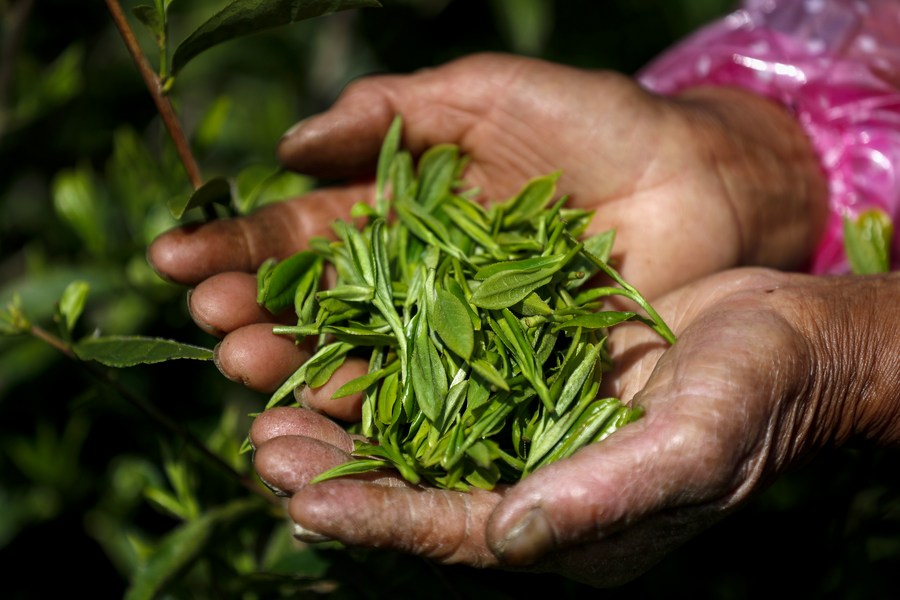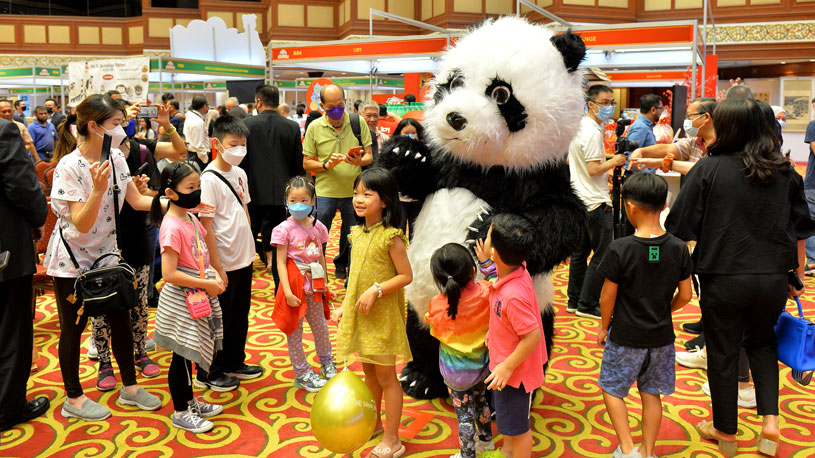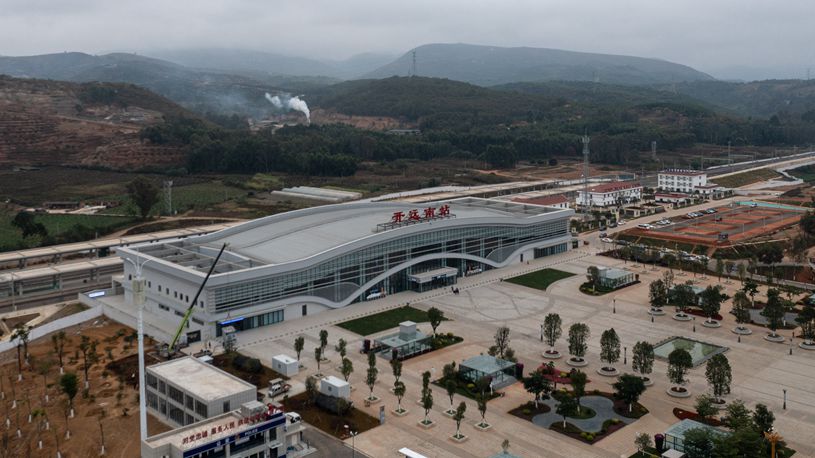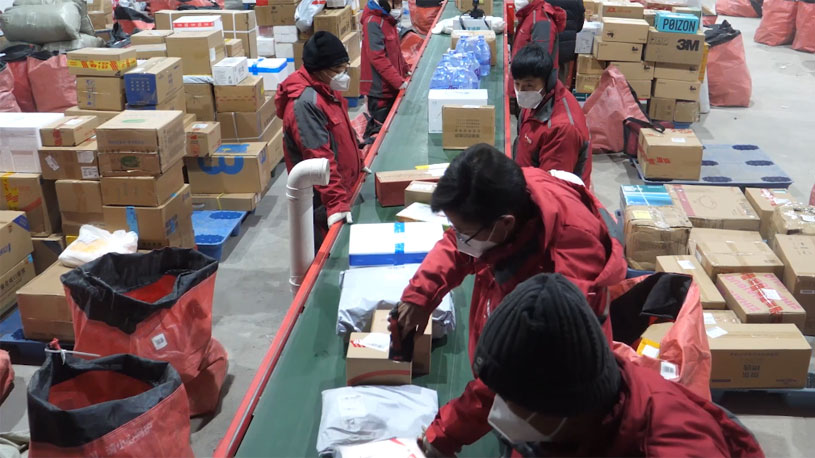
A farmer shows newly-picked tea leaves at a tea garden in Qimen County, east China's Anhui Province, March 28, 2022. (Photo by Shi Yalei/Xinhua)
HEFEI, Dec. 21 (Xinhua) -- Zongzi tea, a kind of tea wrapped like the pyramid-shaped traditional Chinese delicacy Zongzi, is gaining more fans in China as the new wrapping technique adds new appeal to the product.
Zongzi is made of glutinous rice stuffed with different fillings and wrapped in bamboo or reed leaves. Chinese people eat the sticky food to mark the Dragon Boat Festival every year.
Zongzi tea is Keemun black tea wrapped in a kind of bamboo leaf that has long been used for the external packaging of traditional Chinese food. The bamboo leaves add a special flavor to the tea.
Jiang Xuexia, 35, runs a tea garden and tea processing plant in Qimen County, east China's Anhui Province. She first brought the innovative tea product to consumers in 2018.
Jiang quit her job in Shanghai and returned to her hometown of Xiejia Village in Qimen County to help revive the local black tea business in 2014.
At that time, the local specialty Keemun black tea did not sell well or at good prices, and she and her sister Jiang Xueqin established a business to expand the market for local tea products.
In the early years of their business, the two sisters made similar traditional tea products to their market peers. Later, they began to try new product designs as well as marketing strategies.
"By chance, I saw my mother wrapping up some Zongzi to serve our guests. I wondered what it would taste like if our black tea were wrapped up in the kind of bamboo leaves used for Zongzi. This is the idea behind our 'Zongzi tea,'" Jiang Xuexia said.
Jiang's hometown has abundant wild bamboo. Using bamboo leaves adds a trace of the bamboo fragrance to the tea, and she bet that many tea drinkers would welcome the novel idea.
To introduce the product to the market, the sisters undertook many trials to find the best flavor. The Zongzi tea proved to be an instant success when it hit the market in 2018.
China's younger generation of tea lovers welcomed the new product and made it a best-selling product on the country's leading e-commerce platform Taobao.
With the novel product, the two sisters managed to drive up annual sales of their black tea by 70 percent, hitting 10 million yuan (1.44 million U.S. dollars).
The duo, who run a tea garden of over 130 hectares in Qimen County, sell their tea products both through e-commerce and in brick-and-mortar stores. Their sales surge was attributed largely to livestreaming e-commerce and community group-buying.
To cash in on the livestreaming e-commerce boom, Jiang Xuexia livestreamed herself picking and frying tea leaves, tea culture, and related New Year traditions. She is now busy preparing promotional activities for the New Year and Lunar New Year holidays.
"For our traditional tea products, innovation is important and so is marketing," she said. ■












